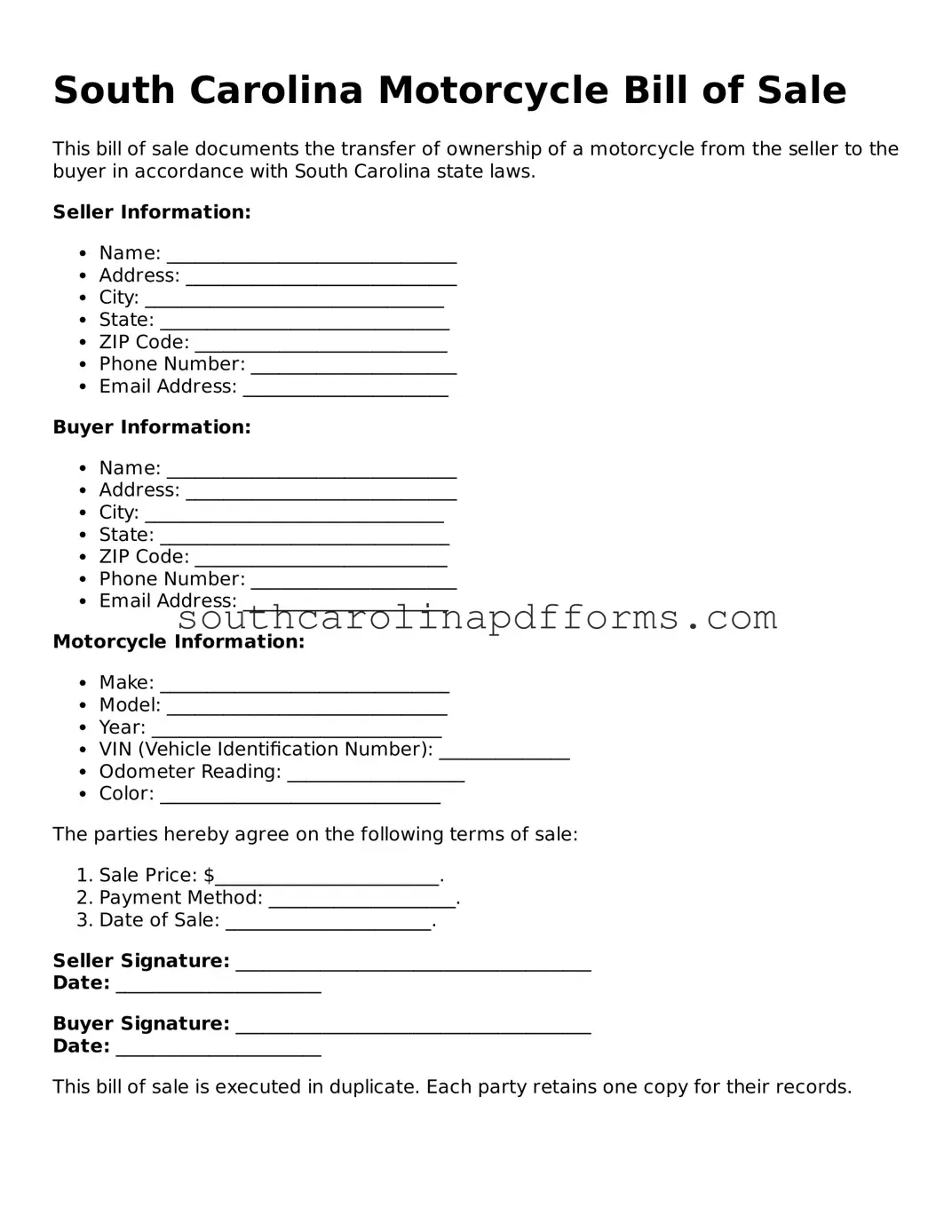Attorney-Approved South Carolina Motorcycle Bill of Sale Document
A South Carolina Motorcycle Bill of Sale form is a legal document that records the transfer of ownership of a motorcycle from one person to another. This form includes essential details such as the names of the buyer and seller, the motorcycle's make and model, and the sale price. Having a properly completed bill of sale can help protect both parties and ensure a smooth transaction.
Access Motorcycle Bill of Sale Here
